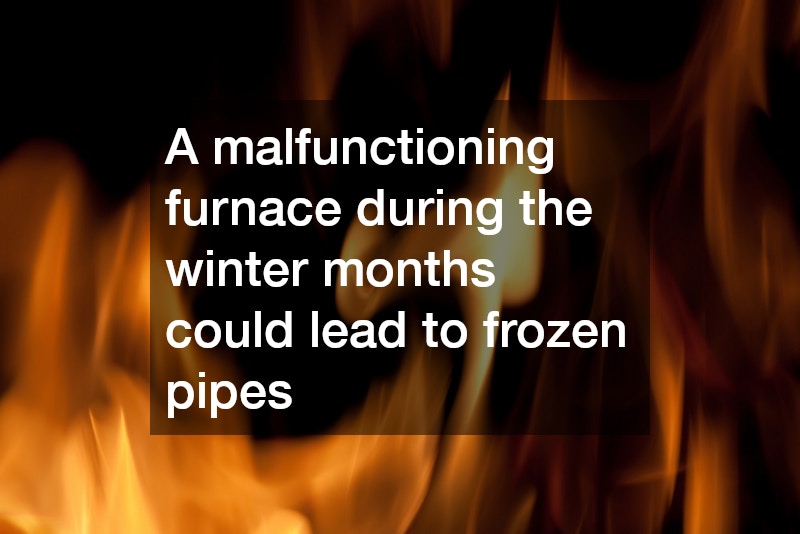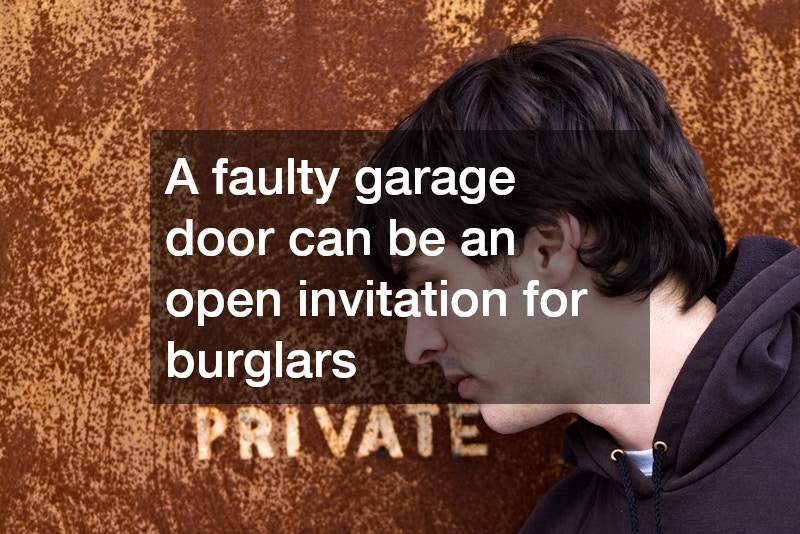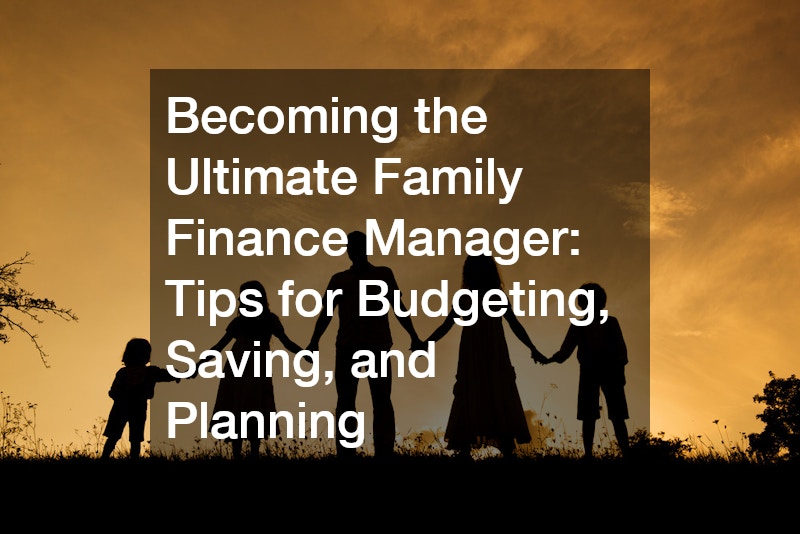
The holiday season is a time to relax, reconnect with loved ones, and enjoy the festive spirit. However, leaving your home unattended for a few days can bring its own set of worries. Preparing your home and taking care of essential tasks can give you peace of mind and ensure you focus entirely on the joys of your trip. Here’s a detailed guide to get your home, car, and family ready for a safe and stress-free holiday getaway.
1. Safeguard Your Home While You’re Away
Your home is not only a significant financial investment but also the place where your family feels secure. Leaving it unattended during the holidays doesn’t have to be a source of anxiety if you take proactive steps to ensure its safety. By addressing potential vulnerabilities in your home, you can prevent emergencies and return to a safe, sound space. Here’s a detailed breakdown of the steps you should take:

Check Your Heating System
A properly functioning heating system is essential for maintaining the safety and integrity of your home, especially during the cold winter months. Here’s what to focus on:
- Schedule Furnace Repair: Before you leave, hire a professional technician to inspect and repair your furnace. A malfunctioning furnace could stop working while you’re away, leading to a dramatic drop in temperature and potentially causing your pipes to freeze and burst. Burst pipes can lead to costly water damage that is difficult to manage remotely.
- Set a Safe Temperature: Don’t turn off your heating system entirely when leaving for the holidays. Instead, set the thermostat to a consistent temperature of about 55°F (or slightly higher if temperatures are extremely cold). This will keep your home warm enough to protect your pipes without wasting energy.
- Consider a Smart Thermostat: For added peace of mind, install a smart thermostat that allows you to monitor and adjust your home’s temperature remotely via a mobile app. This ensures you can respond quickly to any unexpected changes in temperature.
Inspect the Roof and Chimney
Winter weather can turn small home maintenance issues into big problems. Protect your home by addressing common structural vulnerabilities:
- Hire a Roofer for Inspections: Your roof is your home’s first line of defense against snow, ice, and rain. Have a roofer inspect for missing or damaged shingles, which could lead to leaks or structural damage. A professional inspection is especially critical if your area experiences heavy snowfall, as a weakened roof may not support the extra weight.
- Schedule Chimney Service: Even if you don’t plan to use your fireplace, a dirty or obstructed chimney can pose serious risks. Blockages can trap dangerous gases or spark a fire. Professional chimney service ensures your chimney is clear of debris, soot, or animal nests.
- Seal Openings and Cracks: Have your roofer check for gaps where critters could enter and nest in your absence. Sealing these openings also improves energy efficiency by keeping warm air inside your home.
Additional Tips for Home Safety
- Check Smoke and Carbon Monoxide Detectors: Make sure your smoke and carbon monoxide detectors are functioning and have fresh batteries. This is especially important when your heating system is running consistently while you’re away.
- Shut Off Unnecessary Water Valves: In addition to setting your thermostat, consider shutting off water to appliances like washing machines or dishwashers. This reduces the chance of leaks while no one is home.
By addressing your home’s heating, roofing, and chimney needs before you leave, you’re taking important steps to protect your property and avoid the stress of returning to unexpected damage. These precautions ensure your home remains a safe haven, even while you’re away enjoying the holidays.
2. Prevent Common Home Hazards
Leaving your home unattended for several days can make it vulnerable to various hazards. Taking a few proactive steps can help you avoid costly and stressful emergencies. Addressing potential plumbing issues and securing entry points ensures your home remains safe and sound while you’re away.
Avoid Plumbing Disasters
Plumbing problems are among the most common and damaging home hazards, particularly during cold winter months. Here’s how to prevent them:
- Schedule a Plumbing Inspection: Before you leave, hire a plumber to inspect your home for leaks, signs of corrosion, or areas where pipes may be at risk of freezing. A professional inspection can identify issues that may not be visible to the untrained eye.
- Protect Pipes from Freezing: If the forecast predicts freezing temperatures while you’re away, take steps to safeguard your pipes:
- Open cabinet doors under sinks to allow warm air to circulate around the pipes.
- Leave faucets on a slow drip to keep water moving through the system, which reduces the risk of freezing.
- Insulate exposed pipes in unheated areas such as basements, garages, or crawl spaces.
- Shut Off Unnecessary Water Sources: Turn off the water supply to appliances like washing machines, dishwashers, or ice makers. This step minimizes the risk of leaks that could cause significant water damage if left unattended.
By addressing plumbing risks before you leave, you’ll avoid coming home to the unpleasant surprise of water damage or flooding.

Secure Entry Points
A secure home is a safe home. Burglars often target homes that appear vacant, but securing key entry points can deter potential intruders:
- Test Your Garage Doors: Your garage doors can be an overlooked entry point for burglars. Ensure they close and lock properly, and check that the opener functions without glitches. A garage that won’t lock securely can be a weak spot for home security.
- Enhance Garage Security: Add an automatic timer or a smart lock to your garage door system. Timers can close the door if it’s accidentally left open, and smart locks allow you to monitor and control access remotely via your smartphone.
- Create the Illusion of Occupancy: Install timers on indoor lights or smart home devices to make it appear as though someone is still home. Coupled with a secured garage door, this can act as a strong deterrent to burglars.
Additional Tips for Preventing Hazards
- Unplug Electronics: Reduce the risk of electrical fires by unplugging unnecessary devices and appliances before you leave.
- Store Valuables Securely: Lock away important documents, jewelry, and other valuables in a safe or hidden area.
3. Prepare Your Car for Safe Travels
When your holiday plans involve hitting the road to see loved ones, ensuring your vehicle is ready for the journey is crucial. Winter travel often comes with challenging weather conditions like snow, ice, or rain, and proper preparation ensures the safety of your family while avoiding unexpected delays or expenses.
Check Your Brakes and Tires
The condition of your brakes and tires plays a major role in your car’s safety, particularly in winter weather. Address these components before your trip:
- Schedule Auto Brake Repair:
Pay attention to warning signs such as squealing, grinding, or a soft brake pedal, as these indicate potential brake issues. Faulty brakes can compromise your ability to stop quickly on slippery roads, significantly increasing the risk of accidents. Have a professional inspect and repair your braking system to ensure maximum stopping power and reliability. - Inspect Your Tires for Safety:
Your tires’ traction determines how well your car handles icy or wet roads. Check the tread depth—less than 2/32 of an inch is unsafe. Consider upgrading to new tires, particularly winter tires, for enhanced grip and stability in challenging conditions. Don’t forget to check your tire pressure, as it can fluctuate with colder temperatures and impact your car’s handling.
Review Your Auto Insurance
Before embarking on your journey, review your insurance coverage to ensure you’re fully protected in case of an emergency:
- Confirm Coverage:
Look over your auto insurance plans to verify that they’re active and provide adequate coverage for accidents, weather-related damage, or breakdowns. Comprehensive coverage can be especially useful during winter travel, where the likelihood of unexpected incidents is higher. - Take Advantage of Roadside Assistance:
Many insurance plans include roadside assistance as part of their coverage. This can be a lifesaver if you experience a flat tire, dead battery, or engine trouble while on the road. Ensure you have the contact number and details of the service readily available for quick access.
Holidays
Additional Car Safety Tips
- Stock an Emergency Kit: Include essentials like a flashlight, jumper cables, first-aid supplies, blankets, bottled water, and snacks. These items can be invaluable if you’re stranded during bad weather.
- Check Your Battery: Cold weather can reduce your car battery’s efficiency. Have it tested to ensure it’s fully charged and capable of handling the journey.
- Plan for Refueling Stops: Avoid letting your gas tank drop below half-full in winter conditions, as this helps prevent fuel line freezing and ensures you won’t run out of gas in remote areas.
Preparing your car for holiday travel minimizes the risks associated with long-distance driving during the winter. With proper brake repairs, tire inspections, and a thorough review of your insurance, you can focus on enjoying the time with your family while staying safe on the road.
4. Look After Your Family’s Health
Taking proactive steps to address potential health concerns ensures your family is ready to enjoy the season without interruptions. Here’s how to prioritize health before your trip:
Schedule Health Check-Ups
Preventative healthcare is essential, especially before traveling. A visit to your doctor or a clinic offering direct primary care services can help identify and manage any potential health concerns:
- Comprehensive Health Assessments:
Schedule a routine check-up for each family member to ensure everyone is in good health before embarking on your holiday plans. These visits can catch minor issues like seasonal allergies, colds, or lingering fatigue that could worsen while traveling. - Medication Management:
If anyone in your family relies on prescription medications, make sure you have enough for the duration of your trip. Discuss refills or adjustments during your check-up. This is particularly important for chronic conditions like asthma, diabetes, or high blood pressure, where running out of medication could pose serious risks. - Vaccinations and Immunizations:
For families traveling to different regions or states, check if any specific vaccinations are recommended. A clinic offering direct primary care services can provide these and address questions about travel health risks.
Don’t Forget Dental Exams
Oral health is easy to overlook in the busy lead-up to the holidays, but addressing it before your trip can save you from pain and inconvenience during your travels:
- Prevent Emergencies:
A quick dental exam for each family member can identify issues like cavities, loose fillings, or gum inflammation that could become painful if left untreated. Addressing these problems now ensures you won’t have to search for emergency dental care during your holiday. - Routine Cleanings:
Scheduling a professional cleaning ensures everyone’s teeth are in good shape and reduces the risk of gum disease or infections while away. Cleanings also leave your family feeling refreshed, just in time for all those holiday photos. - Special Attention for Kids:
If you have young children, a pre-trip dental check-up can help avoid tooth pain during travel. Many dental offices offer kid-friendly services to make the visit stress-free and even fun for little ones.
Additional Tips for Holiday Health
- Pack a First-Aid Kit: Include essentials like bandages, pain relievers, antihistamines, and motion sickness remedies in your travel kit to address minor health issues on the go.
- Stay Hydrated and Rested: Traveling, combined with holiday indulgences, can weaken immune systems. Encourage your family to drink plenty of water and get adequate sleep in the days leading up to your trip.
- Plan for Allergies: If anyone in your family has food allergies, ensure you have medications like antihistamines or an EpiPen handy, especially if you’ll be dining at restaurants or relatives’ homes where allergens may be present.
By taking care of health check-ups and dental exams before your holiday trip, you’re setting your family up for a fun and worry-free season.
Taking a few hours to prepare your home, car, and health before heading out for the holidays can save you from significant stress and unexpected expenses
By taking these steps, you can focus on what truly matters—cherishing moments with loved ones and making memories that last a lifetime. Safe travels, and happy holidays!


